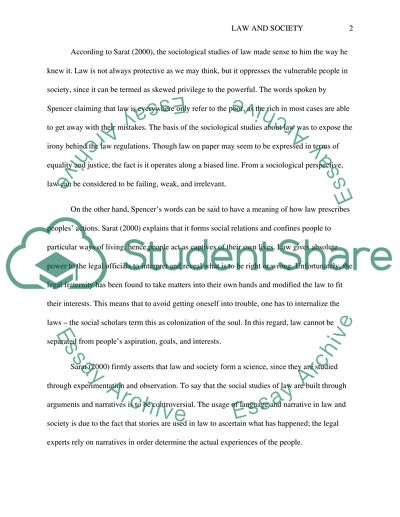Cite this document
(“Law and Society Book Report/Review Example | Topics and Well Written Essays - 1750 words”, n.d.)
Law and Society Book Report/Review Example | Topics and Well Written Essays - 1750 words. Retrieved from https://studentshare.org/sociology/1453053-law-and-society
Law and Society Book Report/Review Example | Topics and Well Written Essays - 1750 words. Retrieved from https://studentshare.org/sociology/1453053-law-and-society
(Law and Society Book Report/Review Example | Topics and Well Written Essays - 1750 Words)
Law and Society Book Report/Review Example | Topics and Well Written Essays - 1750 Words. https://studentshare.org/sociology/1453053-law-and-society.
Law and Society Book Report/Review Example | Topics and Well Written Essays - 1750 Words. https://studentshare.org/sociology/1453053-law-and-society.
“Law and Society Book Report/Review Example | Topics and Well Written Essays - 1750 Words”, n.d. https://studentshare.org/sociology/1453053-law-and-society.


